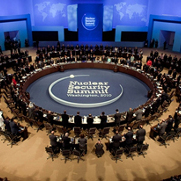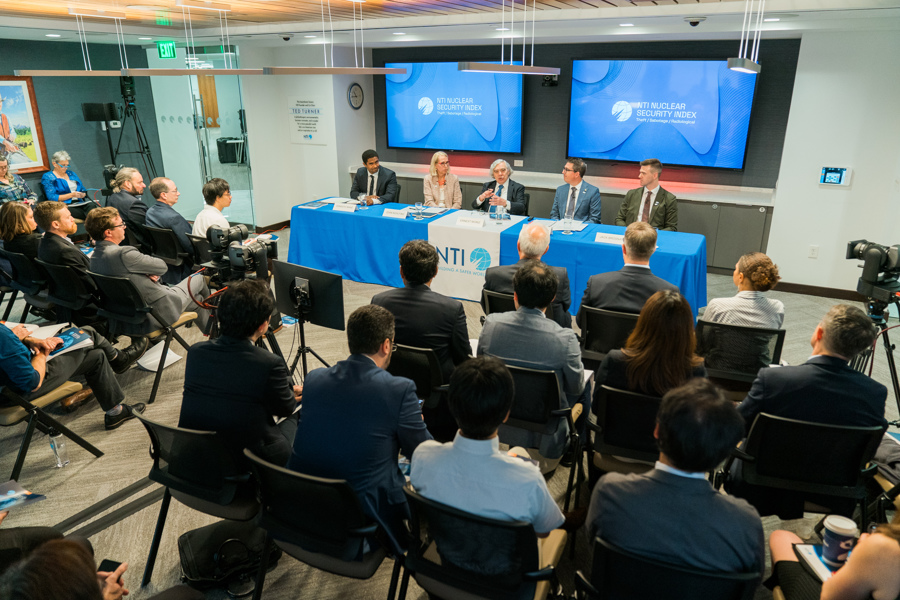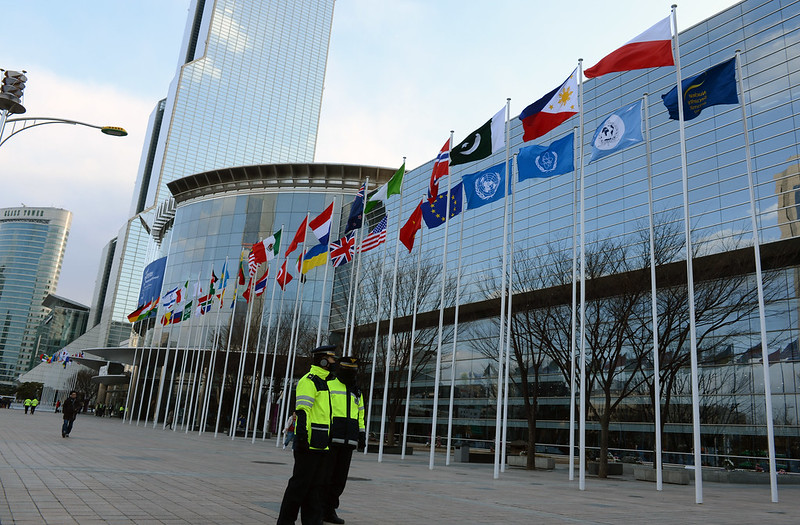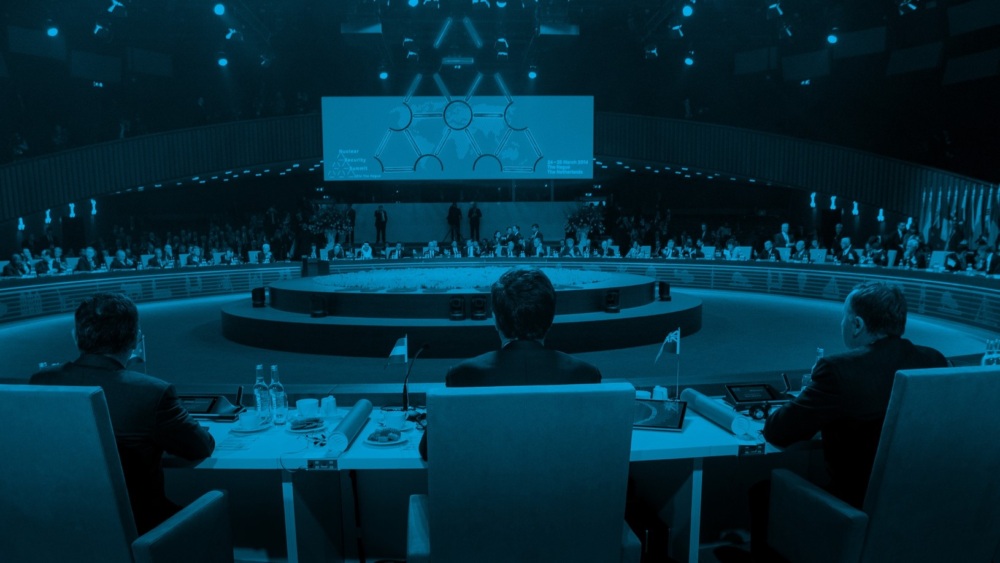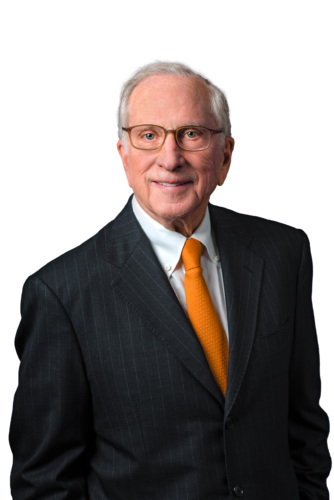
Sam Nunn
Co-Founder and Co-Chair, NTI
About the image
In an editorial in the Washington Post, the editorial board praised the achievements of the Nuclear Security Summit, while raising serious concerns about future progress after the fourth and final Nuclear Security Summit in March.
“The potential threat is clear. Much has been done to reduce nuclear weapons stockpiles and materials over the past 25 years, but hazards remain from highly enriched uranium and plutonium spread around the globe. Some 1,800 metric tons of weapons-useable material is stored in hundreds of facilities, including civilian research reactors and military stocks…
But now comes the difficult part. Leaders of more than 50 nations will gather in Washington at the end of this month for the fourth and final nuclear security summit. Then what? The summit process has not given rise to an effective global system for securing these nuclear materials. It will take some real imagination and determination to keep up the pressure. We hear the coming summit will produce “action plans,” pledges from the leaders to pursue nuclear security in existing international organizations. It may also set up some kind of smaller, ongoing contact group. But will these be sufficient to sustain the sense of urgency and political drive that the summits generated?”
The editorial cited NTI’s 2016 Nuclear Security Index: “A detailed index published by the Nuclear Threat Initiative shows tangible progress was achieved between 2012 and 2014, but since then efforts have stalled, due to political issues that have diverted attention, bureaucratic inertia, lack of resources and cultural factors. None of these are going away any time soon.”
Additionally, the editorial quoted NTI CEO and Co-Chairman on the state of U.S.-Russian relations: “The rapid deterioration of U.S. relations with Moscow has taken a toll, too. Russia has declared it will not attend the summit. Cooperation on nuclear security has all but collapsed under the weight of President Vladimir Putin’s ill-fated adventure in Ukraine. Former senator Sam Nunn (D-Ga.), who pioneered that cooperation, said recently there is a “corrosive lack of trust” between Washington and Moscow, and channels of communication are “few and far between.” Without in any way easing the pressure on Mr. Putin over Ukraine or Syria, the United States and Russia ought to realize that Islamic State terrorists interested in nuclear materials in Belgium are a threat to all countries, and one worth talking about.”
Sign up for our newsletter to get the latest on nuclear and biological threats.
“The bottom line is that the countries and areas with the greatest responsibility for protecting the world from a catastrophic act of nuclear terrorism are derelict in their duty,” the 2023 NTI Index reports.
Nuclear security experts from around the world joined NTI Tuesday for a webinar on “Global Tools for Nuclear Security: An Introduction to IAEA Information Circulars on Nuclear Security.”
Countries should step up their efforts to close gaps and support, contribute to, and participate in efforts to bolster the global nuclear security architecture.
